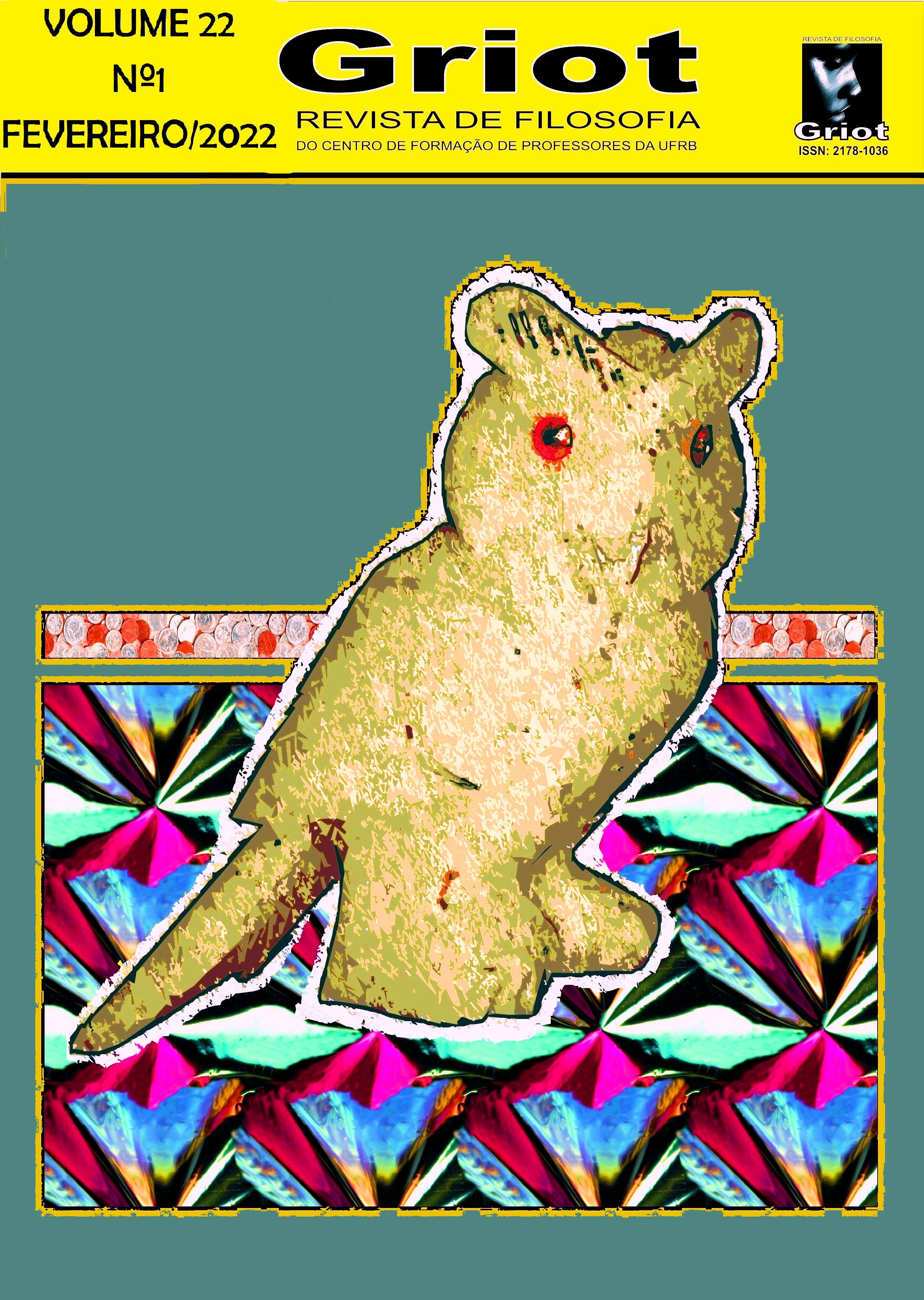Philanthropic problematization of ecological action
DOI:
https://doi.org/10.31977/grirfi.v22i1.2818Keywords:
Production; Consumption; Anthropocentric; Sustainability; Ecocentric.Abstract
This article discusses the existing duality between the terms Earth and world under the of the 21st century ecological crisis. It proposes, from the deconstruction of anthropocentric and ecocentric values, an analysis of the philanthropic/sustainable paradigm, as a way of understanding the interdisciplinary nature of the possible coexistence between Man and Nature. For this, are demonstrated some hierarchical imbalances present in the concession of Western culture proposed by Samuel Huntington, in the ecological imaginary of indigenous communities defended by Zoe Todd, and in the environmental impact of consumer society from the perspective of Patrick Curry, Richard Sylvan, and David Bennett. As a result, the importance of understanding a balance between consumption and production is demonstrated, condemning the elitist anthropocentrism of western communities as the cause and solution of the ecological problem, transversally illustrated from the market and the art world under the conception of the practical uselessness of its existence and given its contribution to a problem of overproduction.
Downloads
References
BARTHEL-BOUCHIER, D. Sacha Kagan, Art and Sustainability: Connecting Patterns for a Culture of Complexity. International Sociology, 2012. 27(5), 683–686. https://doi.org/10.1177/0268580912452375
BENNETT, D., & SYLVAN, R. The Greening of Ethics. Tucson, USA: University of Arizona Press, 1994.
BENNETT, J. Vibrant Matter: A Political Ecology of Things (John Hope Franklin Center Book). Duke University Press Books, 2010.
CURRY, P. Ecological Ethics: An Introduction (1º ed.). Polity Press, 2005.
CLODD, E. Animism, the Seed of Religion. Amsterdam, Netherlands: Adfo Books, 2012.
COLLIN, P. Dictionary of Environment and Ecology: Over 7,000 terms clearly defined (Bloomsbury Reference) (5º ed.). A&C Black, 2004.
DELEUZE, G., & GUATTARI, F. Anti-Oedipus: Capitalism and Schizophrenia. University of Minnesota Press, 1983.
FRIEDMAN, R. M. Liberdade para Escolher, Publicações europa-américa, 1980.
FORAN, T. P. Defining Métis: Catholic Missionaries and the Idea of Civilization in Northwestern Saskatchewan, 1845-1898 (1º ed.). University of Manitoba Press, 2017.
HUNTINGTON, S. P. O Choque de Civilizações e a Recomposição da Ordem Mundial (5º ed.). Objetiva,1997.
KOHAK, E. The Green Halo: A Bird’s-Eye View of Ecological Ethics. Chicago and La Salle, Illinois: Open Court, 1999.
LEVESQUE, S. Two versions of ecosophy: Arne Næss, Félix Guattari, and their connection with semiotics. Sign Systems Studies, 2016, 44(4), 511–541. https://doi.org/10.12697/sss.2016.44.4.03
SAHLINS, M. What is Anthropological Enlightenment? Some Lessons of the Twentieth Century. Annual Review of Anthropology, 1999, 28(1), i–xxiii. https://doi.org/10.1146/annurev.anthro.28.1.0
STEVENSON, A., & LINDBERG, C. A. New Oxford American Dictionary 3rd Edition (3º ed.). Oxford University Press, 2010.
TOBGAY, T. This country isn’t just carbon neutral — it’s carbon negative. YouTube, 2016. Acedido em https://www.youtube.com/watch?v=7Lc_dlVrg5M
TURPIN, H. D. E. Art in the Anthropocene: Encounters Among Aesthetics, Politics, Environments and Epistemologies (Critical Climate Change). Open London: Humanities Press, 2015.
WORLD COMMISSION ON ENVIRONMENT AND DEVELOPMENT. Our Common Future (Oxford Paperbacks ed.) (1º ed.),1987.
Downloads
Published
How to Cite
Issue
Section
License
Copyright (c) 2022 Ana Ribeiro, Teresa Almeida

This work is licensed under a Creative Commons Attribution 4.0 International License.
The authors who publish in Griot: Revista de Filosofia maintain the copyright and grant the magazine the right of first publication, with the work simultaneously licensed under the Creative Commons Attribution 4.0 International License, allowing sharing and adaptation, even for commercial purposes, with due recognition of authorship and initial publication in this journal. Read more...









































































